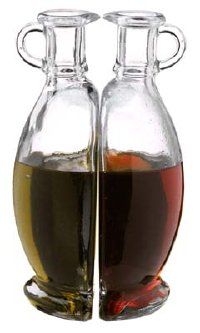Itchy, dry skin is very unpleasant. Winter makes it worse, and spending money on expensive over-the-counter remedies often doesn't work. So what can you do to soothe that cracking skin of yours? In this article we'll offer some home remedies that will get you closer to the smooth skin you desire.
Removing the Roughness
You could sand a cabinet with your palm. Your legs look like you're molting. And you're afraid if you shake hands with your new boss, he'll think you're part alligator. Yes, you've got dry skin. If only you could shed your itchy, scaly, rough skin and get a new luxurious, supple, soft covering every year. Unfortunately, people have to keep the skin they're in for a lifetime. That means a lot of years dealing with skin problems such as dry skin. Millions of people cope with dry skin every year, helping to make the skin care business a billion dollar industry. There are no magic ways to give you back baby soft skin. But knowing why your skin gets dry and learning simple ways to hydrate your skin will keep it from singing "How Dry I Am" for a lifetime.
Advertisement
Super Skin
Your skin is much more than a covering for your bones. It is a shield against the environment, protecting you from disease-causing bacteria. The skin carries blood vessels and is a home for your nerve endings (that's why you're so ticklish). And the on/off nozzle for your sweat glands is found in the surface of your skin. Of course, since it's also the part of your body that faces the harshest outside obstacles, it tends to get a lot more wear and tear.
Dry skin is one of the more frustrating skin problems. Ideally, your skin gets saturated with moisture from your sweat glands and tissues that lie beneath the skin, and oil produced by the skin's sebaceous glands seals the deal by holding onto that moisture. But when your body has trouble holding in the water and oil that it needs to keep skin moist, you end up with dry skin.
Why You're So Dry
There are lots of reasons why skin loses moisture. Sometimes you inherit the tendency to have parched skin--your skin may not be able to hold onto water very well or your sweat glands may not produce as much moisture as other people's. And as you get older, your skin produces less oil, which means you can't retain water on your skin as you once could.
Besides genetics and getting older, there are environmental reasons why skin gets so dry. These include:
The air out there (or in there). The main reason you get scaly skin is low humidity. Though Old Man Winter is the one to blame for most climate-related dry skin problems, he's not the only culprit. Anywhere you encounter low humidity, you'll encounter dry skin. Heating or air conditioning can both dry out your skin.
You aren't Daffy. Water may roll off a duck's back, but human skin doesn't work that way. Too much water, especially from hot showers or baths or from hot tubs, can cause problems. The more you wet down and dry off, the less able your skin is to retain water. So if you take a couple of hot showers a day, you can remove vital oils from your skin that help keep your skin moist. Spending too much time in hot tubs can cause the same itchy, flaky skin problems.
Cleaning up can leave you dry. Harsh detergents, soaps, and household cleaners could give you a case of alligator hands. Learn to sidestep this condition with a few simple tips and home remedies on the next page.
For more information on other dryness issues you might be suffering from, try the following links:
- To see all of our home remedies and the conditions they treat, go to our main Home Remedies page.
- Itchy scalp? Put moisture in that mop with some Home Remedies for Dry Hair.
- Have the opposite problem of dryness? Learn about Home Remedies for Oily Skin in this article.
- Oily hair can make it look like you haven't had a shower in days. Learn how to treat it in a few simple steps and read Home Remedies for Oily Hair.
This information is solely for informational purposes. IT IS NOT INTENDED TO PROVIDE MEDICAL ADVICE. Neither the Editors of Consumer Guide (R), Publications International, Ltd., the author nor publisher take responsibility for any possible consequences from any treatment, procedure, exercise, dietary modification, action or application of medication which results from reading or following the information contained in this information. The publication of this information does not constitute the practice of medicine, and this information does not replace the advice of your physician or other health care provider. Before undertaking any course of treatment, the reader must seek the advice of their physician or other health care provider.
Advertisement

